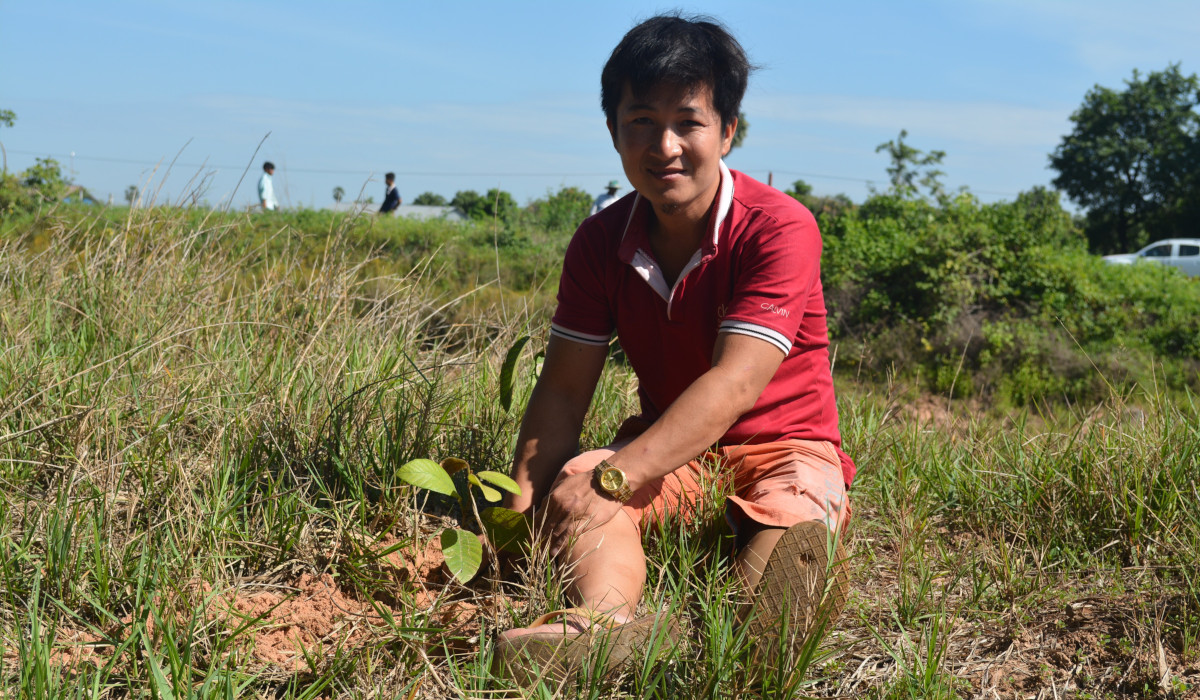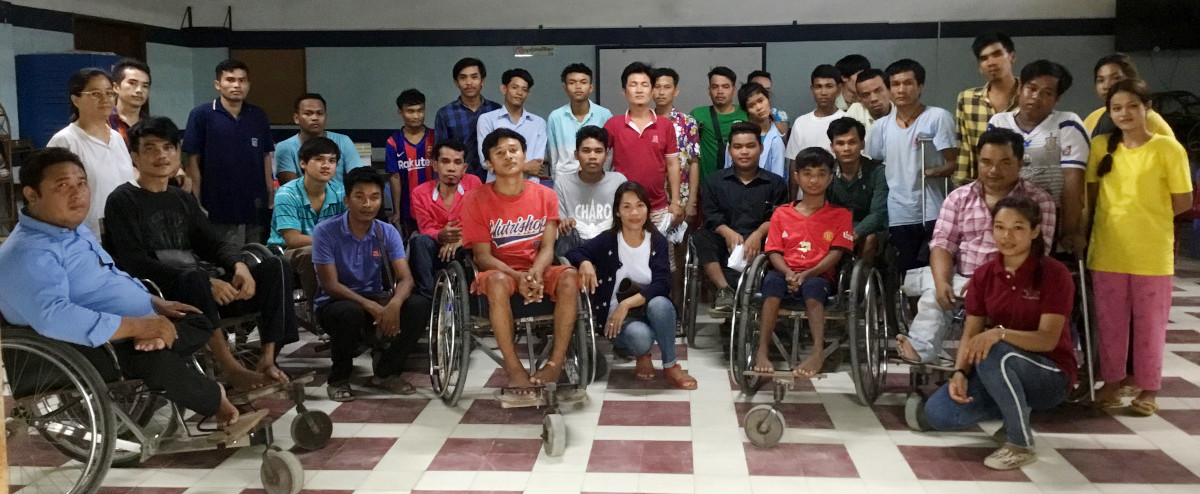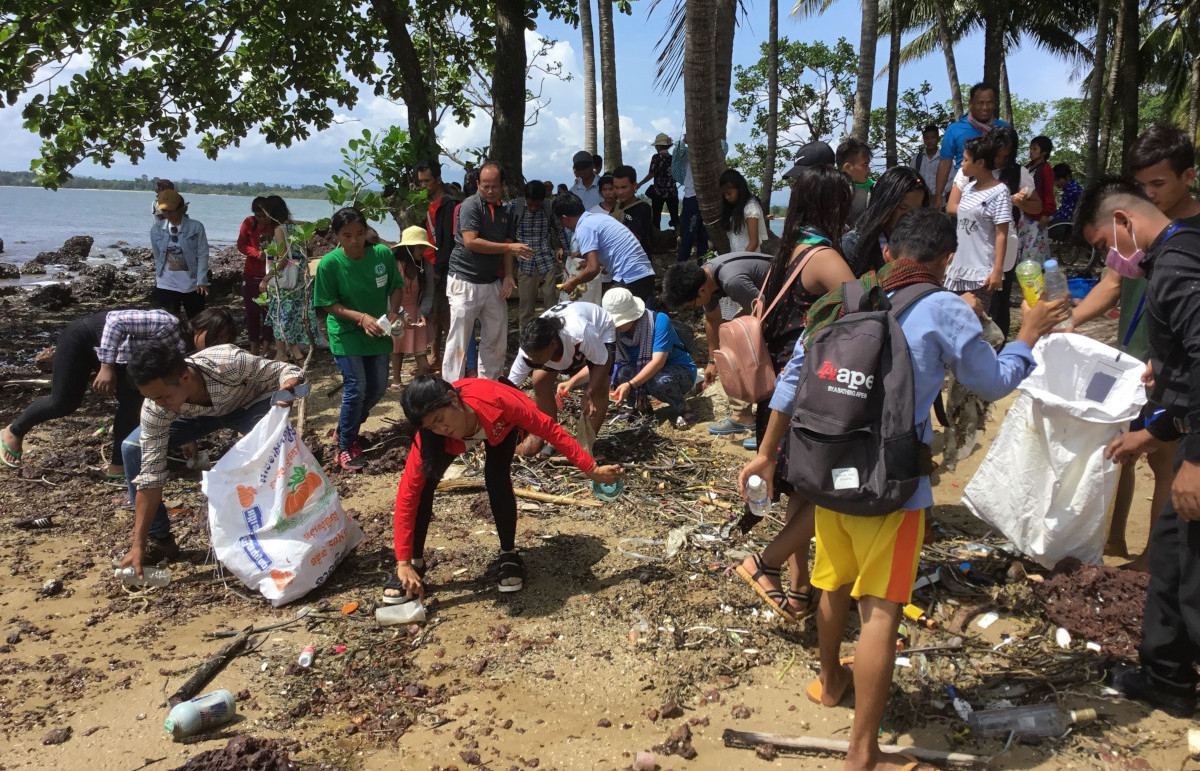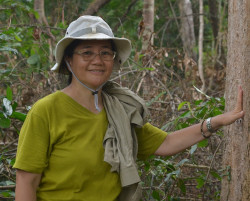
One of the major themes of the Ecology Program is education and advocacy. “Education is important, especially of the young”, said Fr Gabriel Lamug-Nañawa SJ, Coordinator of Jesuit Service Cambodia. “We need to engage the youth in increasing awareness and action in local environmental issues. The youth of today deserve to witness and experience the beauty and complexity of the natural world, as well as to be aware of the many ways by which we are gravely harming the Earth and its life-giving systems.”
Through our environmental education activities in schools and communities, mainly on climate change, plastic pollution and the issues facing our forests, rivers and lakes, we seek to guide and empower the youth towards positive action for our common home.
We have been giving environmental talks to different schools and organisations in Cambodia. In 2019, our focus for environmental education activities are Banteay Prieb, the Jesuit vocational training school for people with disabilities, and Pathsanday Middle School, a floating school on Tonle Sap. Our approach combines workshops and practical activities. We usually start by emphasising the beauty of nature and one’s personal relations with nature.
In Banteay Prieb, we started with a talk on the beauty, significance and challenges of the Prey Lang Forest. We were happy and uplifted to see the participants listening intently to the videos and talk. At the end, we asked whether they wanted to protect the forest, and they gave an overwhelming and immediate “Yes!”. They said they will share with their family and friends what they have seen and learned about Prey Lang so that more people will be aware. On July 9, the Banteay Prieb students, teachers, staff and volunteers planted 128 seedlings of native Cambodian trees (Beng, Phuong Chuom Phour, Chrei, Acacia and Popel) at Banteay Prieb’s new farm. They made sure that the seedlings were planted properly, with the hole deep enough for the roots to grow and the seedlings placed at the correct level to receive the right amount of sunlight and water.
Plastic is a big problem worldwide. A study estimates that in Phnom Penh alone, each person uses 2,000 plastic bags a year. The Banteay Prieb students are taking this problem seriously. On June 20, they had a session with the Ecology Program on plastics, the gravity of the problem and steps one can take to address it. At the beginning of the session, some of them said they needed straws to drink, but by the end of the workshop, they all said they do not need straws and will try their best not to use single-use plastic, or at the very least reduce its use. During the Banteay Prieb outing, the students also conducted a coastal clean-up. We were around 140 people and in 30 minutes, we gathered around 40 sacks of trash. Other people joined in, too, in collecting trash.

Banteay Prieb students
We do not expect the Banteay Prieb students to change after attending and participating in these activities but we hope that we are able to plant a seed. When you plant a seed, it will not remain a seed forever. If you nurture the soil with water, the seed will bloom into a plant.








